Tag Archive for: Field Crops
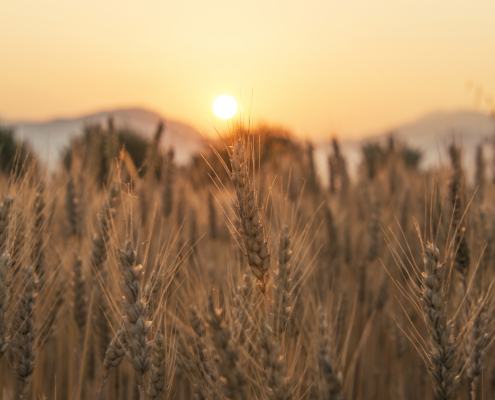 Wikimedia Commons
https://attra.ncat.org/wp-content/uploads/2025/09/Sunset-over-the-wheat-field-featured-scaled.jpg
2096
2560
Marisa Larson
/wp-content/uploads/2022/06/ATTRAlogo_RGB-340x156.png
Marisa Larson2025-09-10 11:33:152025-11-21 13:21:50Organic Small Grain Production Overview
Wikimedia Commons
https://attra.ncat.org/wp-content/uploads/2025/09/Sunset-over-the-wheat-field-featured-scaled.jpg
2096
2560
Marisa Larson
/wp-content/uploads/2022/06/ATTRAlogo_RGB-340x156.png
Marisa Larson2025-09-10 11:33:152025-11-21 13:21:50Organic Small Grain Production Overview https://attra.ncat.org/wp-content/uploads/2022/09/Preparing-a-Resilient-Future-Banner-1.png
500
500
NCAT IT
/wp-content/uploads/2022/06/ATTRAlogo_RGB-340x156.png
NCAT IT2022-09-27 10:54:252024-12-24 10:51:10Preparing a Resilient Future
https://attra.ncat.org/wp-content/uploads/2022/09/Preparing-a-Resilient-Future-Banner-1.png
500
500
NCAT IT
/wp-content/uploads/2022/06/ATTRAlogo_RGB-340x156.png
NCAT IT2022-09-27 10:54:252024-12-24 10:51:10Preparing a Resilient Future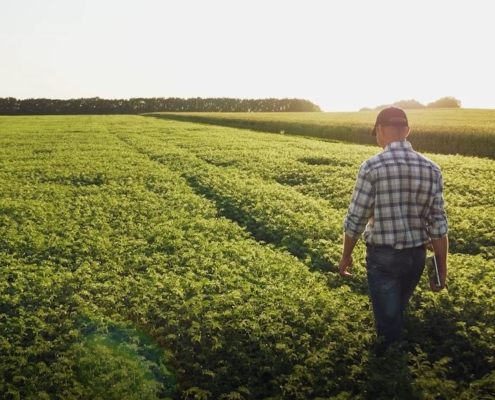
New Toolkit: How to Reduce Synthetic Fertilizer Use
For more than 35 years, the National Center for Appropriate Technology’s…
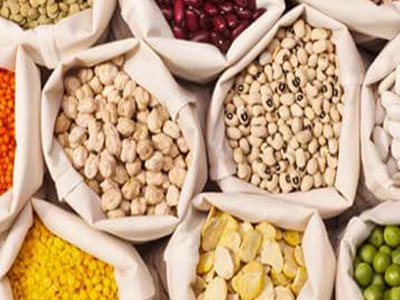
The Timeless Pulse: A Personal Story
This coming year, I am reaching the age where the federal government has suggested that it might be best for me to retire. While amazing legumes provide a natural and timeless means to address much of the fertility needs of at least organic agriculture, I am realizing that I am not as timeless as I used to fool myself into believing.
By Jeff Schahczenski, NCAT Agricultural and Natural Resource Economist
By Jeff Schahczenski, NCAT Agricultural and Natural Resource Economist

NCAT Leads Partnership to Train Beginning Farmers and Ranchers Across Northern Great Plains
The National Center for Appropriate Technology will lead a regional partnership to help more than 300 beginning farmers and ranchers across the Northern Great Plains explore the value, viability, and resilience of raising organic field crops.
NCAT will lead this $600,000 three-year Preparing a Resilient Future project alongside the Montana Organic Association, Northern Plains Sustainable Agriculture Society, Center for Rural Affairs, the Intertribal Agriculture Council, Nebraska Sustainable Agriculture Society, International Organic Inspectors Association, North Dakota State, and University of Wyoming.
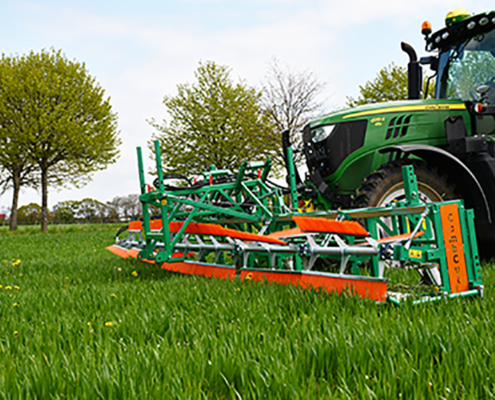
Combcutting: An Innovative Approach for Reducing Broadleaf Weeds in Small Grains
When a small grain crop like wheat, oat, barley, or rye is in the vegetative growth stage and prior to stem development, the crop’s leaves are very flexible. Broadleaf weeds like Canada Thistle growing within the vegetative cash crop generally have a stem, which continues to get thicker and stiffer as the weed matures. Combcutting technology uses a series of stationary knives that are set at a specific angle and distance from each other.
By Justin Morris, Regenerative Livestock Specialist
By Justin Morris, Regenerative Livestock Specialist

Episode 150. Glyphosate Contamination
In this episode of Voices from the Field, Jeff Schahczenski,…
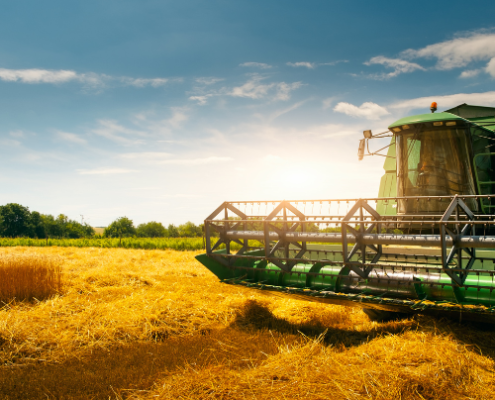 https://attra.ncat.org/wp-content/uploads/2022/09/Wheat-harvest-1.png
500
500
NCAT IT
/wp-content/uploads/2022/06/ATTRAlogo_RGB-340x156.png
NCAT IT2018-09-23 10:34:112022-09-23 10:44:00Field Crops
https://attra.ncat.org/wp-content/uploads/2022/09/Wheat-harvest-1.png
500
500
NCAT IT
/wp-content/uploads/2022/06/ATTRAlogo_RGB-340x156.png
NCAT IT2018-09-23 10:34:112022-09-23 10:44:00Field CropsTag Archive for: Field Crops
 Wikimedia Commons
https://attra.ncat.org/wp-content/uploads/2025/09/Sunset-over-the-wheat-field-featured-scaled.jpg
2096
2560
Marisa Larson
/wp-content/uploads/2022/06/ATTRAlogo_RGB-340x156.png
Marisa Larson2025-09-10 11:33:152025-11-21 13:21:50Organic Small Grain Production Overview
Wikimedia Commons
https://attra.ncat.org/wp-content/uploads/2025/09/Sunset-over-the-wheat-field-featured-scaled.jpg
2096
2560
Marisa Larson
/wp-content/uploads/2022/06/ATTRAlogo_RGB-340x156.png
Marisa Larson2025-09-10 11:33:152025-11-21 13:21:50Organic Small Grain Production Overview https://attra.ncat.org/wp-content/uploads/2022/09/Preparing-a-Resilient-Future-Banner-1.png
500
500
NCAT IT
/wp-content/uploads/2022/06/ATTRAlogo_RGB-340x156.png
NCAT IT2022-09-27 10:54:252024-12-24 10:51:10Preparing a Resilient Future
https://attra.ncat.org/wp-content/uploads/2022/09/Preparing-a-Resilient-Future-Banner-1.png
500
500
NCAT IT
/wp-content/uploads/2022/06/ATTRAlogo_RGB-340x156.png
NCAT IT2022-09-27 10:54:252024-12-24 10:51:10Preparing a Resilient Future
New Toolkit: How to Reduce Synthetic Fertilizer Use
For more than 35 years, the National Center for Appropriate Technology’s…

The Timeless Pulse: A Personal Story
This coming year, I am reaching the age where the federal government has suggested that it might be best for me to retire. While amazing legumes provide a natural and timeless means to address much of the fertility needs of at least organic agriculture, I am realizing that I am not as timeless as I used to fool myself into believing.
By Jeff Schahczenski, NCAT Agricultural and Natural Resource Economist
By Jeff Schahczenski, NCAT Agricultural and Natural Resource Economist

NCAT Leads Partnership to Train Beginning Farmers and Ranchers Across Northern Great Plains
The National Center for Appropriate Technology will lead a regional partnership to help more than 300 beginning farmers and ranchers across the Northern Great Plains explore the value, viability, and resilience of raising organic field crops.
NCAT will lead this $600,000 three-year Preparing a Resilient Future project alongside the Montana Organic Association, Northern Plains Sustainable Agriculture Society, Center for Rural Affairs, the Intertribal Agriculture Council, Nebraska Sustainable Agriculture Society, International Organic Inspectors Association, North Dakota State, and University of Wyoming.

Combcutting: An Innovative Approach for Reducing Broadleaf Weeds in Small Grains
When a small grain crop like wheat, oat, barley, or rye is in the vegetative growth stage and prior to stem development, the crop’s leaves are very flexible. Broadleaf weeds like Canada Thistle growing within the vegetative cash crop generally have a stem, which continues to get thicker and stiffer as the weed matures. Combcutting technology uses a series of stationary knives that are set at a specific angle and distance from each other.
By Justin Morris, Regenerative Livestock Specialist
By Justin Morris, Regenerative Livestock Specialist

Episode 150. Glyphosate Contamination
In this episode of Voices from the Field, Jeff Schahczenski,…
 https://attra.ncat.org/wp-content/uploads/2022/09/Wheat-harvest-1.png
500
500
NCAT IT
/wp-content/uploads/2022/06/ATTRAlogo_RGB-340x156.png
NCAT IT2018-09-23 10:34:112022-09-23 10:44:00Field Crops
https://attra.ncat.org/wp-content/uploads/2022/09/Wheat-harvest-1.png
500
500
NCAT IT
/wp-content/uploads/2022/06/ATTRAlogo_RGB-340x156.png
NCAT IT2018-09-23 10:34:112022-09-23 10:44:00Field CropsTag Archive for: Field Crops
 Wikimedia Commons
https://attra.ncat.org/wp-content/uploads/2025/09/Sunset-over-the-wheat-field-featured-scaled.jpg
2096
2560
Marisa Larson
/wp-content/uploads/2022/06/ATTRAlogo_RGB-340x156.png
Marisa Larson2025-09-10 11:33:152025-11-21 13:21:50Organic Small Grain Production Overview
Wikimedia Commons
https://attra.ncat.org/wp-content/uploads/2025/09/Sunset-over-the-wheat-field-featured-scaled.jpg
2096
2560
Marisa Larson
/wp-content/uploads/2022/06/ATTRAlogo_RGB-340x156.png
Marisa Larson2025-09-10 11:33:152025-11-21 13:21:50Organic Small Grain Production Overview https://attra.ncat.org/wp-content/uploads/2022/09/Preparing-a-Resilient-Future-Banner-1.png
500
500
NCAT IT
/wp-content/uploads/2022/06/ATTRAlogo_RGB-340x156.png
NCAT IT2022-09-27 10:54:252024-12-24 10:51:10Preparing a Resilient Future
https://attra.ncat.org/wp-content/uploads/2022/09/Preparing-a-Resilient-Future-Banner-1.png
500
500
NCAT IT
/wp-content/uploads/2022/06/ATTRAlogo_RGB-340x156.png
NCAT IT2022-09-27 10:54:252024-12-24 10:51:10Preparing a Resilient Future
New Toolkit: How to Reduce Synthetic Fertilizer Use
For more than 35 years, the National Center for Appropriate Technology’s…

The Timeless Pulse: A Personal Story
This coming year, I am reaching the age where the federal government has suggested that it might be best for me to retire. While amazing legumes provide a natural and timeless means to address much of the fertility needs of at least organic agriculture, I am realizing that I am not as timeless as I used to fool myself into believing.
By Jeff Schahczenski, NCAT Agricultural and Natural Resource Economist
By Jeff Schahczenski, NCAT Agricultural and Natural Resource Economist

NCAT Leads Partnership to Train Beginning Farmers and Ranchers Across Northern Great Plains
The National Center for Appropriate Technology will lead a regional partnership to help more than 300 beginning farmers and ranchers across the Northern Great Plains explore the value, viability, and resilience of raising organic field crops.
NCAT will lead this $600,000 three-year Preparing a Resilient Future project alongside the Montana Organic Association, Northern Plains Sustainable Agriculture Society, Center for Rural Affairs, the Intertribal Agriculture Council, Nebraska Sustainable Agriculture Society, International Organic Inspectors Association, North Dakota State, and University of Wyoming.

Combcutting: An Innovative Approach for Reducing Broadleaf Weeds in Small Grains
When a small grain crop like wheat, oat, barley, or rye is in the vegetative growth stage and prior to stem development, the crop’s leaves are very flexible. Broadleaf weeds like Canada Thistle growing within the vegetative cash crop generally have a stem, which continues to get thicker and stiffer as the weed matures. Combcutting technology uses a series of stationary knives that are set at a specific angle and distance from each other.
By Justin Morris, Regenerative Livestock Specialist
By Justin Morris, Regenerative Livestock Specialist

Episode 150. Glyphosate Contamination
In this episode of Voices from the Field, Jeff Schahczenski,…
 https://attra.ncat.org/wp-content/uploads/2022/09/Wheat-harvest-1.png
500
500
NCAT IT
/wp-content/uploads/2022/06/ATTRAlogo_RGB-340x156.png
NCAT IT2018-09-23 10:34:112022-09-23 10:44:00Field Crops
https://attra.ncat.org/wp-content/uploads/2022/09/Wheat-harvest-1.png
500
500
NCAT IT
/wp-content/uploads/2022/06/ATTRAlogo_RGB-340x156.png
NCAT IT2018-09-23 10:34:112022-09-23 10:44:00Field Crops